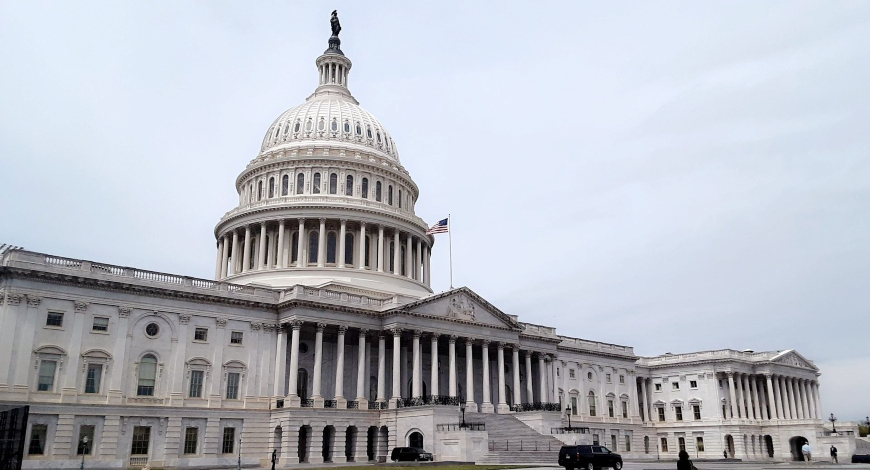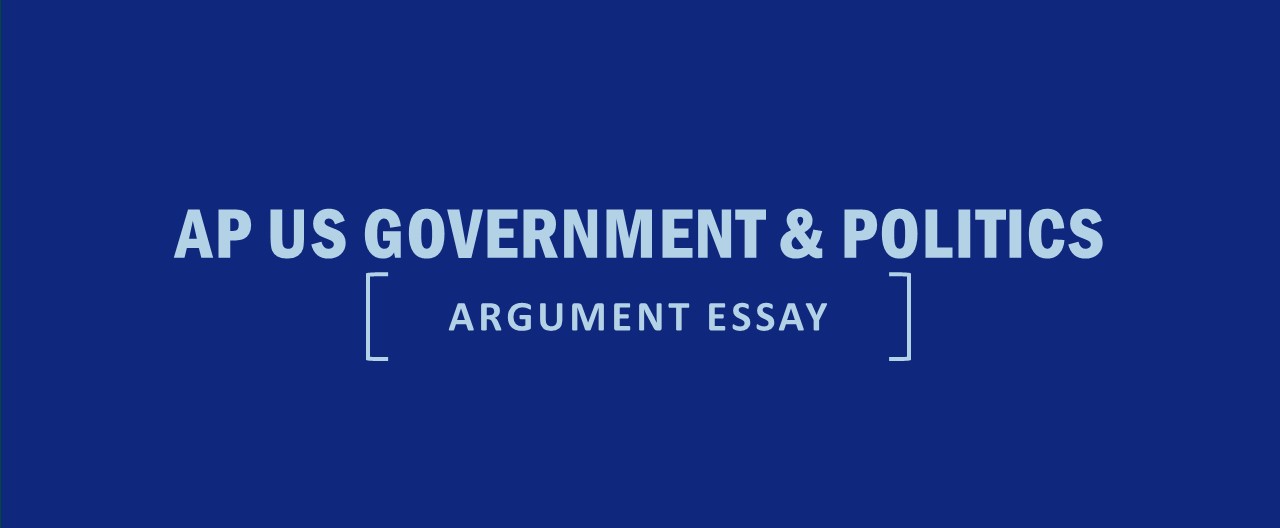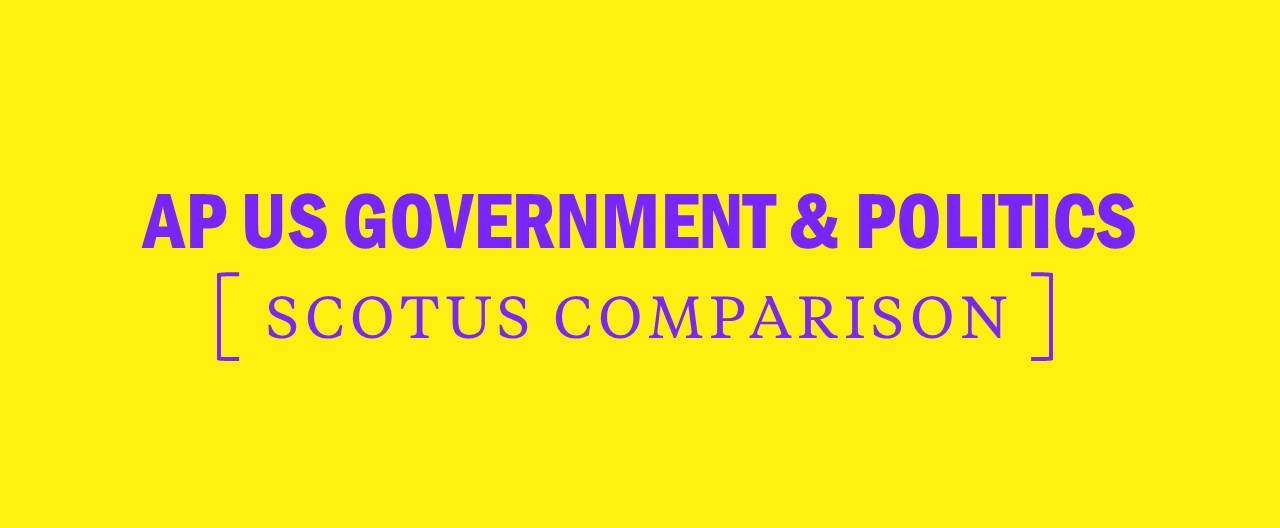- High School
- You don't have any recent items yet.
- You don't have any courses yet.
- You don't have any books yet.
- You don't have any Studylists yet.
- Information

AP United States Government and Politics Unit 2 - Argumentative Essay Independent Judiciary
Ap u.s. government & politics, california connections academy@central - visalia-ca, recommended for you, students also viewed.
- Ap lang speech -2 - jreknwknwlknwl
- AP GOV Lawyer Speech (final)
- Keller High School Brown v Board Court Analysis
- Politics Revision - Socialism
- Drama Revision
- APGP Unit 04 Political Ideology Essay
Related documents
- Essay about mental disability
- Issues in Politics 6 - What do You Think Newspaper Op-ed Writing Assessment 2
- Stabilized Approach
- 5.10 Modern Campaigns - n/a
- Chapter 1 Reading Guide
- Ideals of Democracy – In Class Short Essay
Preview text
Student Teacher AP United States Government and Politics 11 October 2022
Independent Judiciary An independent judiciary is essential, and a savior for democracy because an independent judiciary ensures that there is balance, and fairness in the court. Since there are no parties that are able to influence the opinions, and views of the judge. The judge, however, must make decisions based on facts and laws that are presented to them to ensure fairness in the court. According to Federalist No. 78, it states that “Limitations of this kind can be preserved in practice no other way than through the medium of courts of justice, whose duty it must be to declare all acts contrary to the manifest tenor of the Constitution void. Without this, all the reservations of particular rights or privileges would amount to nothing.” This supports my claim because it indicates that Alexander Hamilton, also believed that the need of an independent judiciary is paramount in a limited government. This is because a limited government can only be sustained through the power of the judiciary branch. Since only the judiciary branch is capable of checking the actions of the legislative branch, it can be the only one who can see if the actions of the legislative branch are following the Constitution, or if its actions are unconstitutional. Without an independent judiciary branch, the rights and freedoms of the people would “amount to nothing.” This is because if the judiciary branch were to not be independent, it would be able to be swayed by the opinions, and beliefs of outside forces. This would make it
undemocratic since the judiciary branch must be impartial, and must judge based on facts and evidence presented. An independent judiciary branch allows people to be “innocent until proven guilty,” and judges to be on neutral standing. They only make decisions and conclusions based on evidence and facts presented to them in the court, and aren’t influenced by external forces. This makes it so the judiciary branch is able to make fair decisions, and to uphold justice and the rules of law. Without an independent judiciary branch, it could allow judges to make biased decisions influenced by external forces, opinions, beliefs, etc. Furthermore, the system of checks and balances is also fair to the separation of powers. This is because the judicial branch is not able to create, nor make laws since that is the job of the legislative branch, but it is able to decide if the laws created are constitutional or not. The legislative branch can also propose constitutional amendments to overrule the decision of the judicial branch. The judicial branch can also declare if the executive branch’s actions are unconstitutional, and the executive branch is able to appoint judges in the judicial branch. This supports my argument because it shows that an independent judiciary is needed to ensure fairness in the courts, and the system of checks and balances also in turn, reinforces fairness onto the judiciary branch to make sure it is not able to become tyrannical, nor almighty. Many anti-Federalists, however, would argue against and oppose an independent judiciary. An example of an argument would be in Brutus I, which argued that “independent of the people, of the legislature, and of every power under heaven. Men placed in this situation will generally soon feel themselves independent of heaven itself.” That is a valid argument due to the newfound freedom from Britain’s tyranny, but the system of checks and balances limits the
- Multiple Choice
Subject : AP U.S. Government & Politics
This is a preview.
Access to all documents
Get Unlimited Downloads
Improve your grades
Get 30 days of free Premium
Share your documents to unlock

Why is this page out of focus?

AP US Government Free Response: Argument Essay Example
After answering the AP Government Argument Essay FRQ , you can evaluate this sample response, which would receive a perfect score:
Sample Student Response
Federal government systems best protect the people’s liberties because the Constitution gives the federal government the power to enforce due process and equal protection at the national level. The 14th Amendment allows Congress to enforce its provisions such as due process. Therefore, Congress (a branch of the federal government) can pass laws protecting people’s civil liberties and, once it does so, apply those laws to the entire nation more effectively than state governments. As discussed in Federalist No. 51, written by James Madison, a federal government is broken up into three different branches of government – the executive, legislative, and judicial branches – and each branch has the ability to check the power of the other branches of government. Therefore, people’s liberties are best protected at the national level since the federal government, by its own design of checks and balances, will check its own powers. Although some may argue that state governments are better at protecting civil liberties because they understand the interests and needs of their own citizens better than the federal government, this argument fails when one looks at how states violated people’s liberties through laws that enforced literacy tests, and it was the federal government that passed legislation restoring citizens’ rights.
You can use the detailed scoring guidelines below to review your answer to this free response question:
When you are done reviewing this AP Gov Argument Essay example and rubric, you can use the button below to return to the main menu.

Sample Prompts for the Argument Essay FRQ- AP government

Below are 16 topics, each of which includes:
- A sample essential question which introduces the prompt
- A draft prompt including three founding documents that could help shape the students’ arguments.
Each prompt is crafted to encourage deep analysis and aligns with key AP Government concepts, ensuring your students are well-prepared for exam success.
AP Government Argument Essay Samples
- NEW ! Media censorship: Should the government play an active role in the censorship of social media?
- Independent judiciary: Is an independent judiciary a threat to or a savior for democracy?
- Congressional roles: Does the delegate or trustee model of Congressional representation best serve the needs of the people as the Framers intended?
- Federalism in the Age of Coronavirus: Should the federal government or the states be most responsible for responding to the Coronavirus outbreak?
- Political Parties: Do political parties hinder or promote democracy?
- Congressional oversight : Is congressional oversight healthy or unhealthy for our system of government?
- Interest groups: Do interest groups hinder or promote democracy?
- Civil Rights: Should the federal government have power over states in the shaping of civil rights policies?
- Citizen participation: Does citizen participation really matter?
- Photo IDs and federalism: Do states have the authority to pass photo identification laws which restrict people’s ability to vote?
- Presidential power: Do executive orders give the president too much power?
- Gridlock: Is gridlock healthy or unhealthy for our system of government?
- Term limits: Do congressional term limits violate or honor popular sovereignty?
- Primaries and caucuses: Is the presidential nominating process democratic?
- Social Media : Is social media a healthy way for citizens to participate in our political system?
- Electoral College: Should the electoral college be abolished?
- Representative versus direct democracy: Which is a better vehicle to serve citizen needs– a representative or direct democracy?
Enhance Your Classroom Experience! You understand the challenges of keeping students engaged and preparing them for the AP exam. Our carefully curated essay prompts are designed to align with AP standards, fostering critical thinking and discussion in your classroom. Get ready to inspire your students with materials that cater to the dynamic world of government and politics.
For more resources for AP government, visit HERE
Other posts you might like…, you may also like.

The Secret to Mastering Critical Thinking in an AI Era

If You’re Trying to Figure Out When Robots Will Replace Teachers, You Came to the Right Place

AI in Education: A Game Changer or a Double-Edged Sword?

The Human Element in AI-Driven Classrooms
Copyright © 2023 Teach Different. All rights reserved.
Connect with:

Login with your site account

Remember Me
Not a member yet? Register now
Register a new account
I accept the Terms of Service
Are you a member? Login now
Don't miss out on the conversation! Subscribe to our blog
Email Address
Subscribe Now

- AP Calculus
- AP Chemistry
- AP U.S. History
- AP World History
- Free AP Practice Questions
- AP Exam Prep

AP U.S. Government and Politics: Argument Essay
Question 4 of the AP U.S. Government and Politics free response section will always be the Argument Essay. These questions begin with a brief paragraph about a given topic, such as the balance between federal and state powers. The prompt will then give specific instructions about how you must format your essay, including a list of several required foundational documents that are relevant to the topic at hand. You will need to discuss one of the listed documents as well as another piece of specific evidence from your own knowledge.
Argument Essay Strategies
While the scoring for the first three free-response questions is more straightforward—you earn points (or not) based on fully addressing each part of the prompt—the scoring for the Argument Essay is a little more complex. The following rubric outlines what the AP readers are generally looking for when they grade your Argument Essay; note the various categories and the ways you can earn points.
Sample Question
- Formulate a defensible thesis that establishes a chain of reasoning.
- Federalist 10
- U.S. Constitution
- Take your other piece of evidence from a different foundational document from the list above OR from your own study.
- Logically explain why your evidence supports your thesis.
- Present and reply to an alternative viewpoint using refutation, concession, or rebuttal.
Step 1: Analyze the Prompt
Step 2: plan your response.
You’ll want to create a brief outline before you start writing, just like you would for any other full-length essay. As you saw from the rubric, AP readers are interested in your thesis development, your use of evidence, and your treatment of an alternative view. Everything you write should be toward one or more of those ends.
You will need to state a thesis that specifically addresses the prompt and makes a claim. Avoid rewording the prompt or being too general. A good question to ask yourself is, “Am I actually taking a position on this issue that someone else might argue against?” Also, while the Argument Essay necessitates a longer, more detailed response than the other free-response question types, it does not require a formal introduction; in fact, writing a lengthy introduction can take up valuable time and frustrate the AP reader who is scoring your essay. Assert your thesis as soon as possible, and then move into the rest of your response.
It is important to note that the Argument Essay’s topic and prompt wording will always intentionally allow for multiple positions. Therefore, you should be strategic and choose the position that you can best back up with evidence. You may even advocate for a different position than the one you personally agree with! To that end, no matter how strongly you feel about a topic, always present your evidence and claims in a balanced manner. Throughout your essay, even and especially when responding to an alternative viewpoint, avoid wording that makes it seem like your argument is simply your personal opinion (e.g., “I think” or “I believe,” or any language that is overly emotional).
With all of this in mind, a high-scoring writer might write the following outline:
Thesis: Trustee is the best model (ideals of Constitution)
- Madison’s fear: large country + big gov’t = factions (many groups disagree)
- Trustee can mediate, come to concl, act in best interests
- Needed trustee model to make change
- Civil rights and women’s rights movements
- The Civil Rights Act of 1964 and Voting Rights Act of 1965
Response to alternative view: Anti-Feds would fear large repub (Brutus), but pol system in place would keep trustee honest
Step 3: Action! Write Response & Step 4: Proofread
Sample high-scoring response.
The trustee model of legislative representation is the best reflection of the founders’ intentions in setting up American democracy because it offers the best hope for what the Preamble to the Constitution calls “a more perfect union,” one that will bring together war- ring factions and increase harmony.
As James Madison pointed out in Federalist 10, it is inevitable that a republic will contain many groups which vehemently disagree. The bigger a country grows, the more frequent and violent factional clashes are likely to become. Madison was looking ahead to the U.S. that would burst the bounds of the original colonies and create more factionalism. This vision of an expanding, clashing nation makes the trustee model very appealing. A trustee Congressperson is one who will listen to all sides, make an independent judgment, but then go on to explain it so that opponents may be persuaded to change their minds, thus bringing resolution to conflicts.
A trustee is a representative willing to do the principled thing even if the public thinks otherwise. Many issues in our history have seemed so polarized that they were beyond resolution and could not wait for popular consensus. This was the case with civil rights issues and legislation in the 1960s. Technically, African Americans had the right to vote since the passage of the Fifteenth Amendment in 1870. However, this right was violently suppressed through intimidation tactics and a variety of restrictive measures such as poll taxes and literacy tests. It was not until the passage of the Voting Rights Act of 1965 that substantial voting protections were extended to all black people. The Voting Rights Act outlawed literacy tests and other tactics; under this act, federal officials were sent to the South to ensure that African Americans were allowed to vote free from fear and intimidation, and the election practices of local governments were held under greater scrutiny. Civil rights movement leaders had challenged discriminatory practices for decades, but due to intense polarization in society, there was no public consensus on how to address racism in voting practices or even agreement as to whether to address it at all. Legislators had to go against the opinions of the majority in order to act in a way that advanced American ideals for all citizens, and the public eventually caught up.
Similarly, legislators pushed through the Civil Rights Act of 1964 which was supported by people within social movements but not by the general populace. Additionally, the Civil Rights Act of 1964 touched on the goals of not just the civil rights movement but also the women’s rights movement; for example, Title VII of the Civil Rights Act prohibited sex discrimination in public accommodations. Members of these movements had been working for years to get society at large to expand rights and protections to all people. However, if legislators had waited to act until a majority of their constituency approved of these civil rights bills, the bills may never have passed. In this way, the trustee model can be used to uphold the rights of the minority despite majority resistance.
The trustee idea would have been opposed by Brutus and other Anti-Federalists. Brutus 1 warns that a large republic would necessarily be disconnected from its people. Following this logic, a concern with the trustee model would be that the representative would deviate too far from the will of the people and become despotic. But it is important to note that the people have the ultimate voice if they disagree with the trustee’s judgments: the power of the ballot. The legislator’s desire to stay in power is a strong check on him or her, acting as an incentive to listen to constituents.
All in all, the trustee is in the best position to reduce the intense factionalism Madison feared. Even before the advance of mass media, the trustee had many means to learn of the people’s different views and to explain why the legislator was voting a certain way, or advancing this or that philosophy. This give and take of ideas surely helped to get the republic through its rocky early decades, and also helped the country to recover from the volatile growing pains and changes in the mid-twentieth century by finding ways to bring people together and advance equal rights for all.
Sample Response Explanation and Scoring
- Thesis (0–1 pt): The writer sets up a clear X because Y sentence to introduce the thesis, which could be paraphrased as, The trustee model brings about harmony. Everything that follows is connected to the founders’ ideal of harmony. The writer would therefore earn 1 point for Thesis.
- Support (0–3 pts): There is more than enough evidence to gain the full 3 points for Support, as the writer explains Madison’s argument in Federalist 10 and elaborates upon relevant historical examples of disharmony that those acting as trustees helped to fix through assertive actions. In addition, the references to the Constitution and Brutus 1 (while unnecessary for earning full credit in Support) show a strong command of course material.
- Reasoning (0–1 pt): The writer earns the 1 point for Reasoning by clearly explaining how a trustee offers the best hope for Madison’s vision. Specifically, the writer asserts in paragraphs 3 and 4 how trustees could not wait for public opinion in order to act.
- Reply to Alternative Viewpoint (0–1 pt): There is a whole paragraph at the end dedicated to rebutting the Anti-Federalists’ objections. In this way, the writer makes it clear that this requirement has been met and earns the final 1 point.
Question-Specific Rubric: 6 points (1 + 3 + 1 + 1)
Learn more about the other free response questions on the AP U.S. Government and Politics exam. Concept Application • Quantitative Analysis • SCOTUS Comparison
You might also like

Call 1-800-KAP-TEST or email [email protected]
Prep for an Exam
MCAT Test Prep
LSAT Test Prep
GRE Test Prep
GMAT Test Prep
SAT Test Prep
ACT Test Prep
DAT Test Prep
NCLEX Test Prep
USMLE Test Prep
Courses by Location
NCLEX Locations
GRE Locations
SAT Locations
LSAT Locations
MCAT Locations
GMAT Locations
Useful Links
Kaplan Test Prep Contact Us Partner Solutions Work for Kaplan Terms and Conditions Privacy Policy CA Privacy Policy Trademark Directory

IMAGES
VIDEO
COMMENTS
The expanded powers of the national government benefit policymaking because they can create uniform policies that apply to all the states. - Articles of Confederation: weak national, all states had to agree, almost impossible to amend - Federalist 10: Factions threaten small republics, strong national prevents singular faction domination - Rebuttal: some say national government is too large.
Sample Question 1 (Argument Essay) (Adapted from: 2019 AP® U.S. Government and Politics Question 4) Allotted time: 25 minutes (plus 5 minutes to submit) The United States Constitution establishes a federal system of government. Under federalism, policymaking is shared between national and state governments. Over
Government and Politics Sample Student Responses and Scoring Commentary Set 1 Inside: ... Argument Essay 6 points ... 2021 AP Exam Administration Sample Student Responses - AP U.S. Government and Politics Free-Response Question 4: Set 1 Author: College Board Subject: 2021 AP Exam Administration: Student Samples and Commentary
Argumentative essay for Unit 2 AP United States Government and Politics student teacher ap united states government and politics 11 october 2022 independent. Skip to document ... Many anti-Federalists, however, would argue against and oppose an independent judiciary. An example of an argument would be in Brutus I, which argued that ...
After answering the AP Government Argument Essay FRQ, you can evaluate this sample response, which would receive a perfect score:. Sample Student Response. Federal government systems best protect the people's liberties because the Constitution gives the federal government the power to enforce due process and equal protection at the national level.
The founders of the United States Constitution wanted to form an elite model of democracy. They wanted the power of the government to be held by a select few, and this is seen in the Constitution.
A sample essential question which introduces the prompt A draft prompt including three founding documents that could help shape the students' arguments. Each prompt is crafted to encourage deep analysis and aligns with key AP Government concepts, ensuring your students are well-prepared for exam success.
Study with Quizlet and memorize flashcards containing terms like Describe the different structures, powers, and functions of each house of Congress., Explain how congressional behavior is influenced by election processes, partisanship, and divided government., Explain how congressional behavior is influenced by election processes, partisanship, and divided government. and more.
Find AP US Government and Politics Exam argument essay strategy tips, sample questions, and sample high-scoring response examples for argument essay questions. ... Question 4 of the AP U.S. Government and Politics free response section will always be the Argument Essay. These questions begin with a brief paragraph about a given topic, such as ...
Study with Quizlet and memorize flashcards containing terms like The polarization of congress has led to ideological warfare between parties that directly channels the passions of their most extreme constituents and donors - precisely the type of factionalism that the founders abhorred., Since the office (of the president) has moved in precisely the direction the founders had hoped to avoid ...